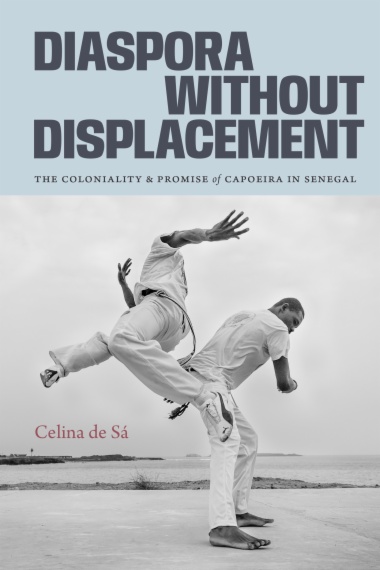Capoeira—a game of combat primarily developed by enslaved West Central Africans—has become an icon of both Brazilian national culture and pride in the country’s diasporic African heritage. Yet the sport remains less accessible in Africa itself, overshadowed in large part by participants in the Global North. In Diaspora Without Displacement, Celina de Sá tells the story of capoeira as it "returns" to the African continent through the creative initiatives of young urban professionals in Senegal. De Sá demonstrates how a new generation of African capoeiristas are taking up their own Afro-diasporic performance tradition, effectively reframing notions of diaspora and race through their social practice. Though capoeira has largely Angolan roots and the agents of return are typically white Brazilians and Europeans, the West African practitioners de Sá documents nonetheless form an exceptional relationship to capoeira that, in turn, becomes a mode of political and social consciousness. Analyzing a capoeira network across West Africa, de Sá shows how urban West Africans use capoeira to explore the relationship between Blackness, diaspora, and African heritage.
- Cover
- Contents
- Preface
- Introduction: Moving Origins
- Chapter One. Whose Diaspora? Unmaking Origins and Renewing Regionalism
- Chapter Two Whiteness, Blackness, and Bushness: The Coloniality of Black Performance in Dakar
- Chapter Three. In Pursuit of Heritage: Unpacking the Materiality of Everyday Objects
- Chapter Four. Spiritual Baggage: Negotiating the Body and Religious Possibilities
- Chapter Five. After Tourism: Diasporic Chauvinism and the Renewed Regionalism of West African Host Pilgrims
- Conclusion: Protecting the Magical Possibilities of Black Movement
- Acknowledgments
- Glossary
- Notes
- References
- Index
- A
- B
- C
- D
- E
- F
- G
- H
- I
- J
- K
- L
- M
- N
- O
- P
- Q
- R
- S
- T
- U
- V
- W
- Y
- Z

